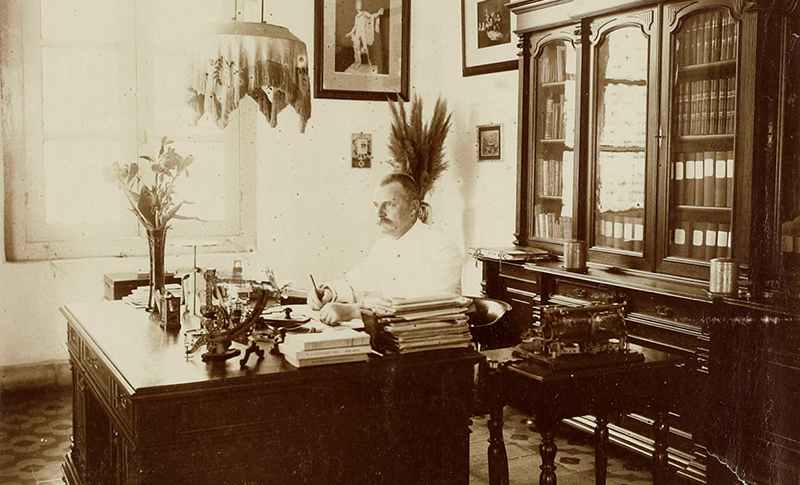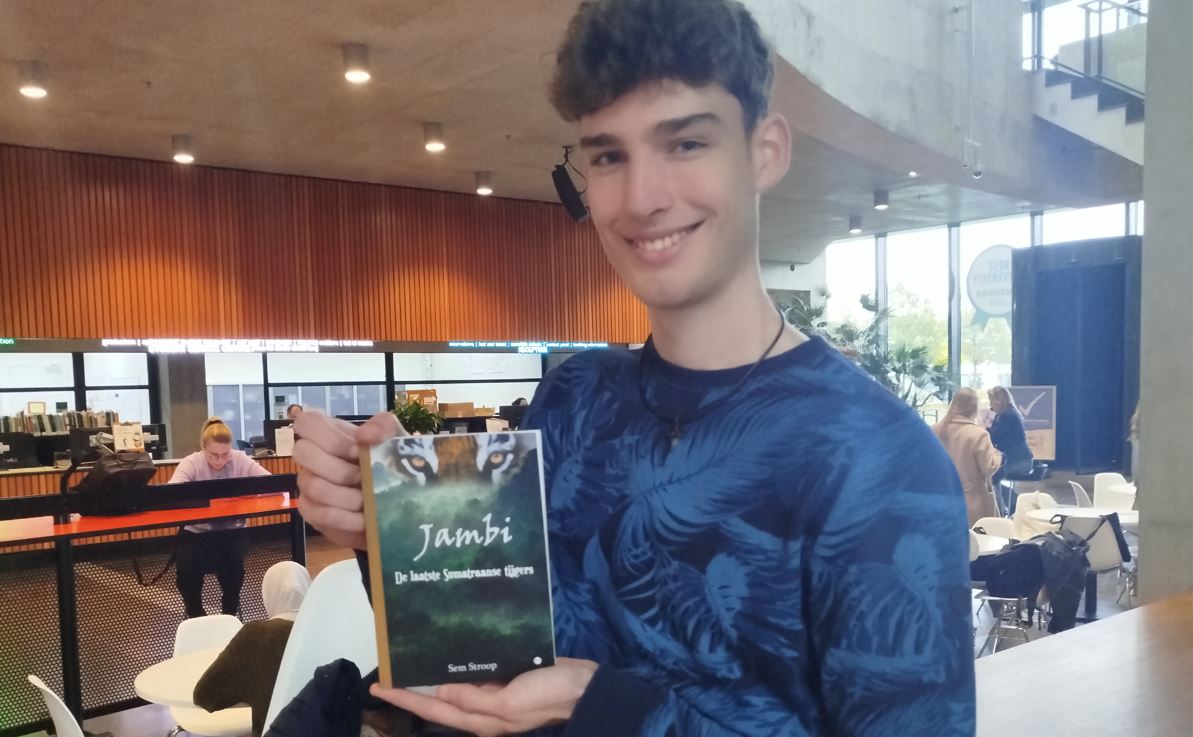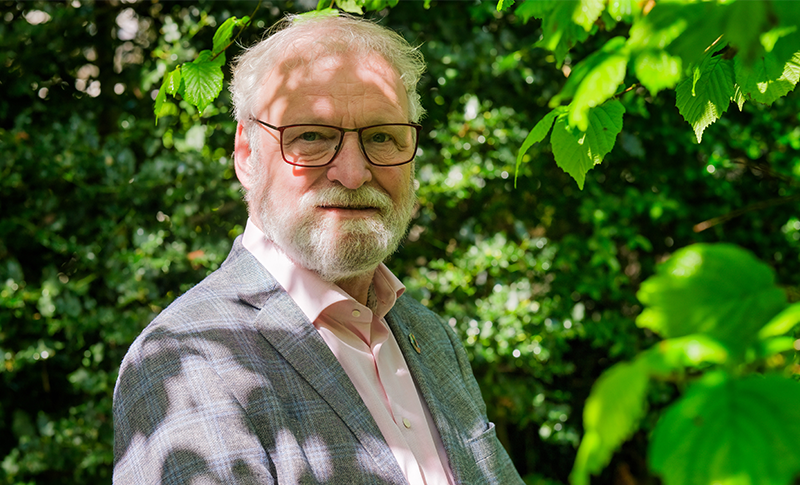Wageningen professor Gerrit Grijns (1865-1944) discovered the vitamins, but did not get a Nobel Prize for this. While others did. A great injustice, according to science historian Rob van den Berg in his book De Vitaminepioniers (the vitamin pioneers).
It was his supervisor Frans van Lunteren, professor of the History of the Natural Sciences in Leiden, who drew his attention to the story. ‘In 1929, Christiaan Eijkman got the Nobel Prize for the discovery of vitamin B1. But he didn’t actually believe in the existence of vitamins. The vitamin theory came from his assistant Gerrit Grijns. You should look into this, said Frans.’
Over the past two years, Van den Berg has delved into that history. His book on the vitamin pioneers is his account of that quest and it reads like a detective story. It was one surprise after another for Van den Berg. ‘The situation was even more extreme than was thought. For nearly 30 years, Eijkman openly opposed Grijns’s vitamin theory. All that time, he ridiculed Grijns’s ideas and tried to sweep them under the carpet. He only changed his mind when vitamin B1 was isolated in 1926. And then it was Eijkman who got the Nobel Prize.’ Eijkman was awarded the Nobel Prize for his discovery in 1890 in the Dutch East Indies that chickens with beriberi recovered if they were fed unpolished rice instead of polished rice. That observation saved the lives of thousands of people. The dreaded disease of beriberi could be prevented and even cured with the right diet. After first proposing all kinds of alternative explanations, Eijkman decided the disease must be caused by a toxin that formed from starch in the chickens’ crop. His successor Grijns showed this was not the case. In a series of ingenious animal experiments, he also disproved all the other explanations that had been proposed. Then he came up with the ground-breaking idea that beriberi was a disease caused by a lack of something. Humans and animals die on a diet of white rice due to a lack of some unknown substance in the husk of brown rice.
Bad luck
Grijns’s insight, which he published in 1901 in a Dutch East Indies medical journal, was quite revolutionary. ‘The accepted doctrine was that carbohydrates, fats, proteins and minerals were all humans and animals needed,’ explains Van den Berg. ‘Grijns showed that was not the case. It’s an amazing insight, entirely attributable to him.’ The new category of substances was later called vitamins. Incidentally, Grijns was never able to isolate the vitamin he theorized about, the vitamin B1 associated with beriberi. Two Dutch doctors did manage this eventually in 1926. By that time, the concept of vitamins was already widely accepted.
But why did Eijkman get the Nobel Prize for discovering this vitamin and not Grijns? ‘Pure bad luck’ is Van den Berg’s conclusion after studying a large number of documents, including the deliberations of the Nobel Committee. From 1914 onwards, the research on vitamins had been considered for a Nobel Prize on various occasions. Eijkman, whether or not in combination with Grijns and others, was nominated several times. ‘But they thought Eijkman’s work was too long ago to qualify for a prize. And he had contributed too little to the research.
Nobel Prize winner Eijkman spent years openly attacking Grijns’s vitamin theory
Then they decided in 1929 to give it to him anyway. Vitamin B1 had been isolated three years earlier, so that meant there was definite proof for the existence of vitamins. And that put Eijkman back in the picture. He was nominated along with three others by the British chemist George Barger. Gerrit Grijns was not among the four.’
Empty handed
Barger might not have been aware of Grijns’s work as he mainly published in Dutch. ‘It is possible, but we don’t know for sure,’ says Van den Berg. ‘Interestingly, the Nobel Committee did seem to know Grijns’s work. The deliberation concerning the nomination states explicitly that Grijns was the first to come up with the idea that a healthy diet requires more than just fats, proteins, carbohydrates and minerals. That raises the question whether you should award the prize if you know it means you are overlooking someone else. On the other hand, the Nobel Committee is not allowed to nominate anyone; they have to work with the nominations they get.’
Eijkman got the prize for the discovery of the vitamin, the substance he spent almost his whole life denying the existence of. Grijns was left empty handed. In his speech accepting the prize, Eijkman did not even mention Grijns’s contribution. ‘Eijkman behaved badly towards Grijns,’ says Van den Berg bluntly. That explains the subtitle of Van den Berg’s book: How two Dutch doctors discovered vitamins and only one got the Nobel Prize for it That sounds rather critical and indignant. Correct, admits Van den Berg. You can see the book as an attempt at a rehabilitation. A lot went wrong with the award of this Nobel Prize, and Gerrit Grijns lost out as a result.
De Vitaminepioniers (in Dutch only)
Rob van den Berg
Publisher: Prometheus
25.99 euros

 Gerrit Grijns in his office as director of the Medical Laboratory in Batavia (now Jakarta). Photo Museum Boerhave
Gerrit Grijns in his office as director of the Medical Laboratory in Batavia (now Jakarta). Photo Museum Boerhave 

